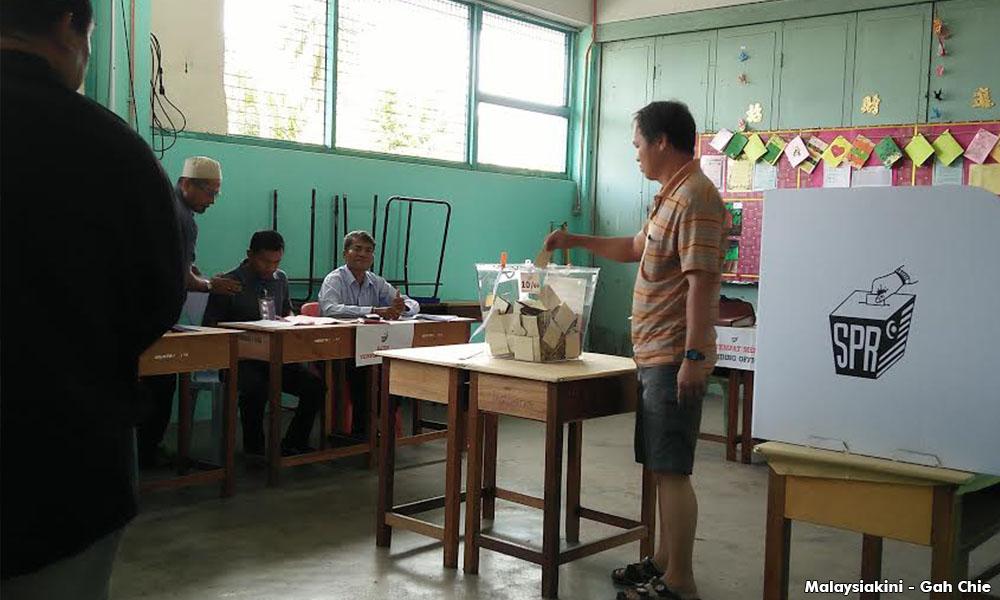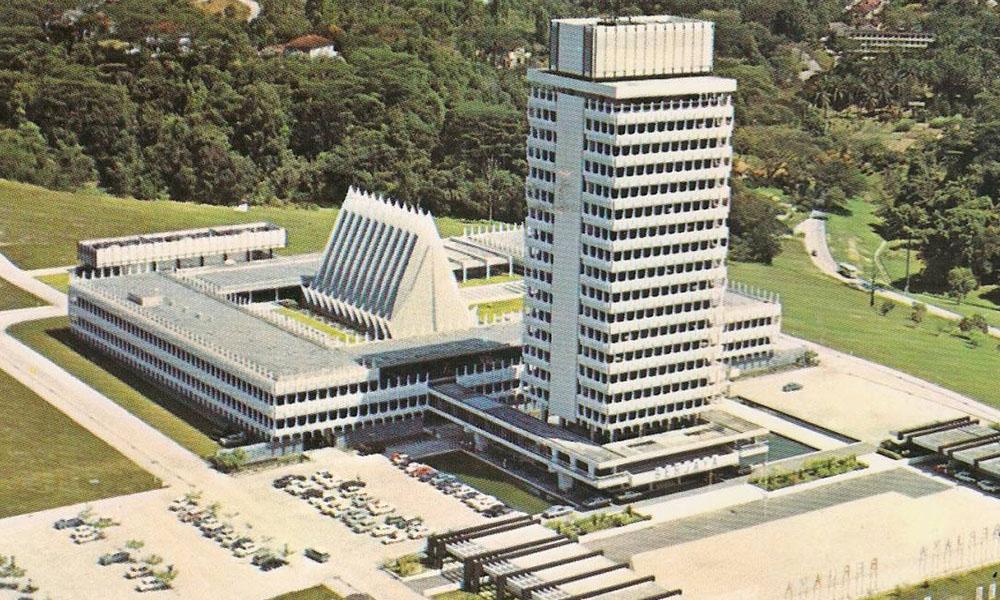Learning to be free, equal and diverse

The day after GE14, my friend Ken said he felt a release from oppression. He’s never been locked up, not once physically robbed of freedom. Not even pepper sprayed; we marched together in Bersih 4, and by then the FRU had stopped brutalising peaceful demonstrators. But on May 10 he exhaled a deep breath, tangibly relieved and mysteriously liberated.
BN’s reign was more a cloud on our minds than shackles at our feet. In a way, it would be easier to identify what held us back, and what to do next, if BN had ruled with an iron fist, a hard authoritarianism. We totally reset, rebuild from scratch; erase the constitution and write a new one.
But the authoritarianism was of a softer, subtle, insidious sort. Now we cry for greater freedom, equality, unity amid diversity. These are all winsome and wholesome things – but there is a learning process ahead, punctuated with subtlety, ambiguity and tension. Taking away restrictions on freedom and obstacles to equality, as promised by Pakatan Harapan, is right and necessary, but incomplete without clarifying and promoting these freedoms and broadening our conception of equality and diversity.
The people clamouring loudest for freedom will most heartily welcome it – activists, civil society leaders, “professionals”, journalists and editors, publishers, a handful of academics. I wonder, are we, as a nation, on the same page?
Malaysia must make a clear break from the past, when the BN regime imposed a climate of control over thought, expression and association, and took arbitrary repressive actions against the critics and dissenters.
The Federal Constitution is the written code that ultimately shapes freedom of speech. Article 10 guarantees freedom of speech, assembly and association in general – but leaves room for parliament to impose laws restricting freedom, in the interest of national security, public order, morality, defamation, and criminal incitement.
In universities and the civil service, authorities have for decades policed thought on the pretext of protecting the institution’s reputation or the national interest. We cannot presume that ingrained mentalities, habits and convictions will naturally dissipate; in fact, they endure and may resurge after a period of latency. The continuing ambiguity of what contravenes “national security”, “public order” or “morality”, and “institution’s reputation” must be resolved.
We could take an arms-length approach of letting new ways percolate, without an orchestrated effort to disseminate new norms and understandings. I don’t think that’s enough; we should be more hands-on.
We need clarity and consensus on free speech. I would like to see Suhakam appointed to deliberate the principle, scope, and national value of basic rights and civil liberties, and present recommendations to parliament. Perhaps even formulate a “Malaysia declaration of freedom”.
Such a defining statement can be incorporated into school curricula and become the bedrock for national endeavours to protect and promote the exercise of these freedoms. I believe this consensus, on the purpose and content of freedom of thought, expression and association, will serve usefully and powerfully to consolidate the cohesion and efficacy of the various legal reforms that are have been promised.
Importantly, it can serve as the premise for further legal reforms, notably the abolition of the Universities and University Colleges Act (UUCA), abolition of the Sedition Act, enactment of freedom of information law – and overhaul of the obscure but important Statistics Act.
Along with freedom, the air is also pregnant with expectations of greater equality, inclusion and meritocracy. Umno-BN is faulted for undermining these ideals; we look to Harapan to realize them afresh.
The road ahead is not simple and straightforward.

Buku Harapan pledges to combat discrimination and bigotry, mostly in the context of ethnicity and religion. This commitment is timely and important, but we should undertake a fuller process.
Such problems must be handled comprehensively. Rather than addressing racial or ethnic discrimination through one mechanism, and gender discrimination through another, we should instead institute legal frameworks and public authorities with jurisdiction over all aspects of discrimination. A more effective and sensible approach might be to set up agencies with specific purviews – again, mandated to oversee all forms of discrimination or bigotry.
Harapan has proposed an equal opportunity commission to oversee labour market practices. I welcome such initiatives but hope the government will also consider establishing an education opportunity commission, or an institution akin to the Social Inclusion Council which civil society groups have previously proposed.
Also, in our zeal to prohibit discriminatory practices and expand meritocracy, we must not be too dogmatic and absolutist. We must be mindful to allow space for measures that promote more equitable representation of certain groups that have in the past been excluded, for example, women and indigenous peoples in decision-making positions, or higher education enrolment.
The question of 30 percent cabinet positions going to women stirs some debate. Many are happy with this election pledge and concerned to see it fulfilled.
However, some baulk at the practice, typically insisting that all appointments must be purely “on merit”. Curiously, no one ever explains what this entails, beyond repeating another platitude that the job should go to “the best person for the job”. Is it about qualifications? A cabinet is very serious and brainy business.
Does meritocracy demand that MPs with a doctorate or masters degrees automatically take precedence over those with only a bachelor’s degree, and that academic transcripts must match ministerial portfolio? What about experience? Would the defenders of “pure merit” insist that the Transport Minister know how to operate a train, or that the Human Resources Minister must have worked as both an employer and trade unionist?
Of course, merit matters. federal ministers must be capable, of leading, learning, analysing, organising, imagining, communicating. These are the merits that matter most.
A government that represents and works for the people must strive to reflect the people and be attuned to their concerns. The cabinet, like many organisations, is also a team, a community. The challenge is assembling one that strikes a reasonable balance and diversity of ethnicity, culture, gender, age, and other aspects.
Unavoidably, the spotlight will shine on cabinet allocations to Harapan component parties. Those negotiations are understandable, but Harapan must ensure that politicking does not sully the promising start it has made, with various ministers showing their mettle and proficiency.
In this season of hope, may the attention to gender representation in the cabinet and decision-making positions precipitate holistic and constructive ideas for Malaysia to pursue greater equality, fairness and diversity.
HWOK AUN LEE is senior fellow at the Institute of Southeast Asian Studies (Iseas), Singapore with the Malaysian Studies and Regional Economic Studies programmes, Hwok Aun has researched and published widely on affirmative action in Malaysia and South Africa. He was previously head of Development Studies, Faculty of Economics at Universiti Malaya. -Mkini
✍ Sumber Pautan : ☕ Malaysians Must Know the TRUTH
Kredit kepada pemilik laman asal dan sekira berminat untuk meneruskan bacaan sila klik link atau copy paste ke web server : https://ift.tt/2LktlBq
(✿◠‿◠)✌ Mukah Pages : Pautan Viral Media Sensasi Tanpa Henti. Memuat-naik beraneka jenis artikel menarik setiap detik tanpa henti dari pelbagai sumber. Selamat membaca dan jangan lupa untuk 👍 Like & 💕 Share di media sosial anda!




















Post a Comment